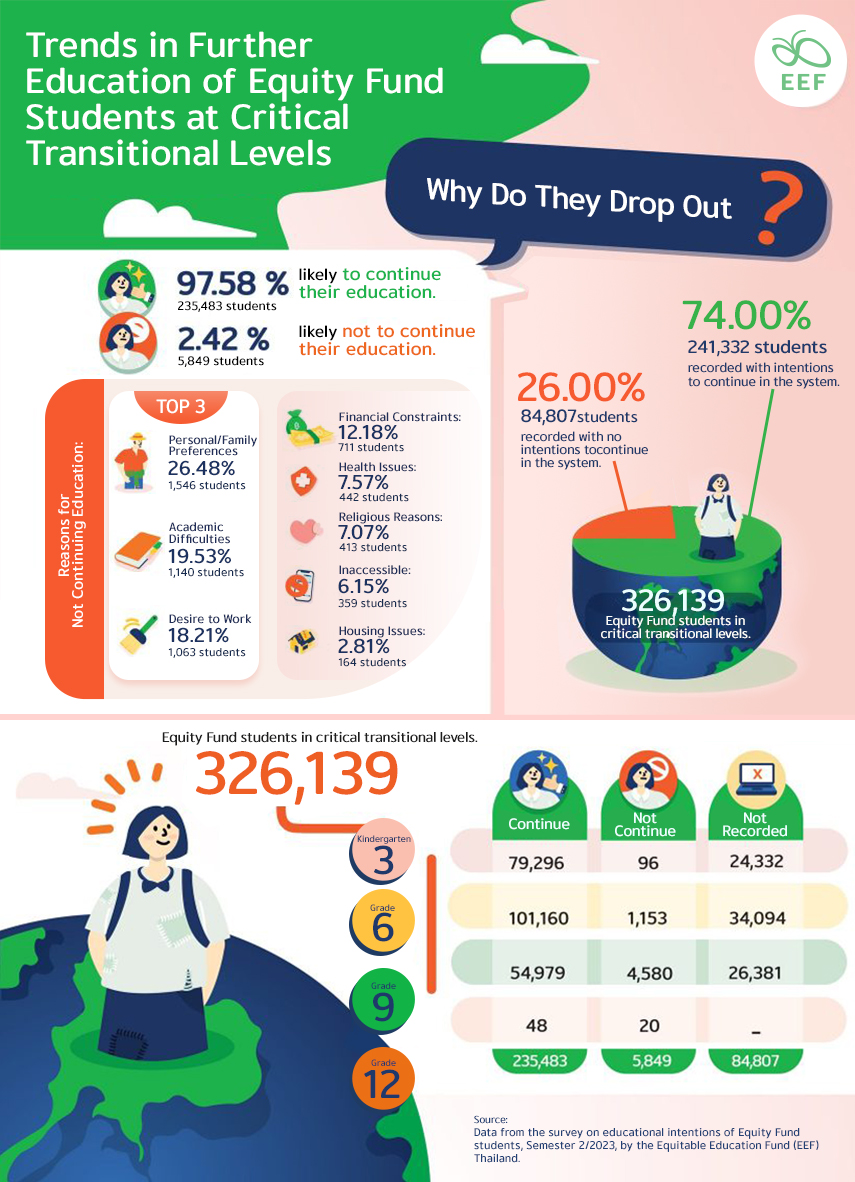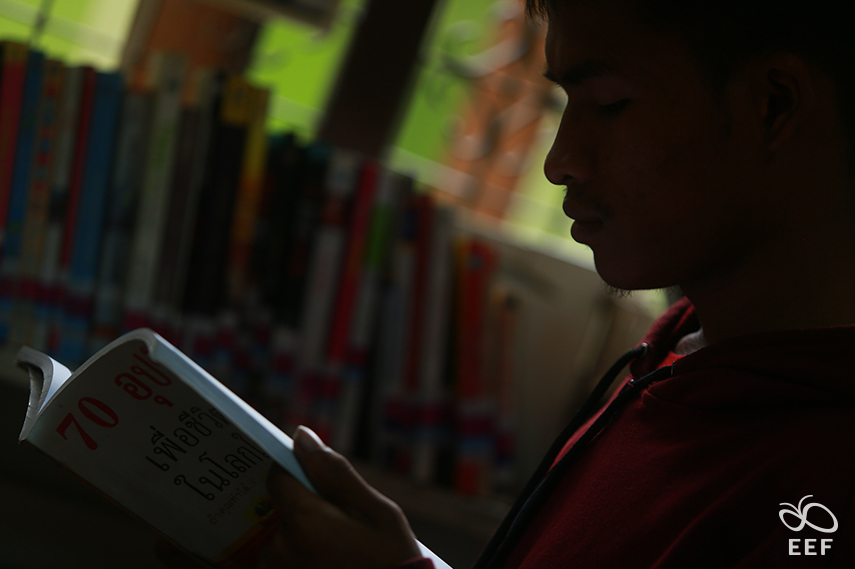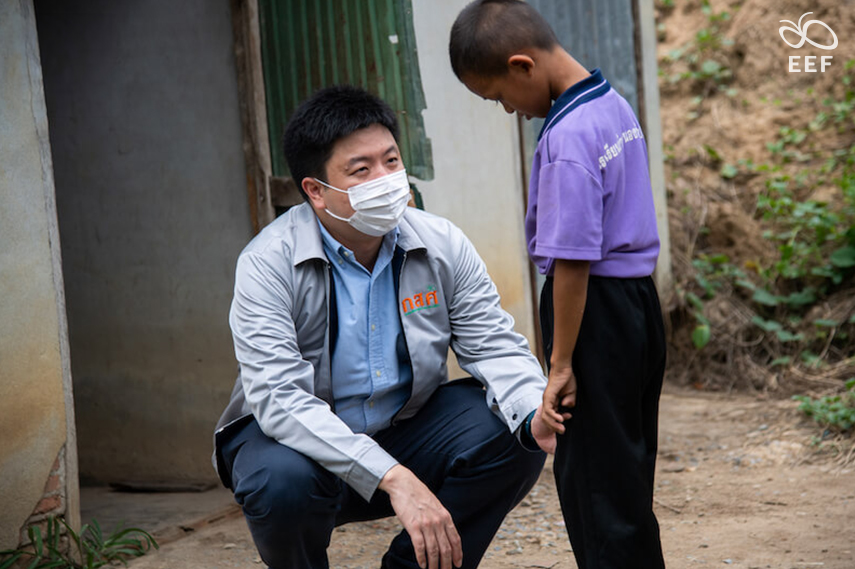
Transitional levels in education represent pivotal moments where students face heightened risks of dropping out. In response, the Equitable Education Fund (EEF) Thailand collaborated with six educational agencies to survey students’ intentions regarding their educational journeys amidst these transitions. In the 2024 academic year, out of 326,139 Equity Fund recipients at these critical stages, data reveals noteworthy trends, shedding light on the factors influencing students’ decisions. This information serves as a vital foundation for designing tailored support measures to ensure no student is left behind in their pursuit of education.

During the second semester of the 2023 academic year, the Equitable Education Fund (EEF) Thailand, in collaboration with six educational agencies, namely the Office of Basic Education Commission (OBEC), Department of Local administration (DLA), Border Patrol Police (BPP), National Office of Buddhism Thailand (NOB), Office of Private Education Commission (OPEC), and Bangkok Metropolitan Administration (BMA), conducted surveys to assess the intentions of students for continuing their education into the subsequent semester. As we progress into the 2024 academic year, a total of 326,139 Equity Fund students will navigate transitional levels, including Kindergarten 3, Grade 6, Grade 9, and Grade 12. These pivotal stages mark critical junctures in their educational trajectories, where they are likely to encounter significant challenges and decisions shaping their academic paths and subsequently informing their career choices.
Among the 241,332 students tracked, a significant majority, comprising 235,483 or 97.58%, expressed their intention to pursue further education. However, 5,849 students, constituting 2.42%, expressed otherwise. The reasons for not continuing varied, with 1,546 citing personal or family preferences, 1,140 facing academic difficulties, and 1,063 expressing a desire to seek employment. Additional reasons included financial constraints for 711, health issues for 442, and religious reasons for 413. Moreover, challenges such as inability to contact and housing issues were reported, comprising 359 and 164 students, respectively. Notably, 11 students did not specify a reason.

This data holds immense importance for relevant agencies tasked with providing support measures tailored to the needs of these students. It underscores the necessity of integrating databases to effectively track and reintegrate students back into the educational system. The overarching goal is not solely to bring students back to the classroom but to design learning opportunities that align with their unique circumstances and aspirations. Through this approach, the aim is to guide children and youth towards educational pathways that resonate with their individual contexts, fostering holistic development and lifelong learning.

As we delve into the comprehensive data analysis, it becomes evident that the challenges students face at transitional levels are varied and multifaceted — a unique blend of personal, academic, financial, and health-related factors intertwining, painting a vivid picture of the complexities these students navigate. Yet, within these complexities lies an opportunity — the data acts as a guiding beacon, illuminating pathways for relevant agencies to tailor support measures precisely to the diverse needs of these students. With this insight, agencies can chart a course toward ensuring not only seamless educational engagement but also the successful reintegration of students back into the educational system.
Since its establishment in 2017, the Equitable Education Fund (EEF) Thailand has spearheaded the Education Security System, a dedicated effort aimed at ensuring economically disadvantaged children and youth navigate through compulsory education successfully. Through close collaboration with the Ministry of Higher Education, Science, Research and Innovation (MHESI) and a network of universities, the system leverages extensive databases like “Conditional Cash Transfer” (CCT) and “Thai University Central Admission System” (TCAS) to provide invaluable support to students in their pursuit of higher education. This comprehensive approach encompasses various forms of non-repayable scholarships, assistance models, and private sector mobilization, all geared towards dismantling barriers hindering vulnerable students’ educational journeys.
Acknowledging the significant progress achieved, it is crucial to understand that continuous refinement within the Education Security System is paramount. This calls for a stronger focus on personalized support and seamless collaboration among different agencies to prevent any student from slipping through the cracks. With insights gained from ongoing trends, not only is the EEF acutely aware of the opportunities for improvement within the Education Security System, but it also is committed to intensifying efforts to upgrade the system, aligning closely with its core principle of ensuring equitable access to quality education for all.

In a bold move to address the ever-evolving needs of economically disadvantaged students, the EEF Thailand has recently introduced a groundbreaking progressive scale approach to the Equity Fund scholarship initiative. Commencing in 2024 and extending until 2026, this initiative significantly boosts annual support to 4,200 Thai Baht per person. This adjustment reflects a nuanced understanding of the financial hurdles faced by students and aims to provide comprehensive support to ensure unimpeded access to education. By embracing this progressive scale, the EEF showcases its responsiveness to student feedback and unwavering commitment to nurturing a brighter educational journey for all. This forward-thinking initiative marks a monumental leap towards tailored support, ensuring that financial constraints do not obstruct students’ pursuit of academic excellence and holistic development.

The Equitable Education Fund (EEF) Thailand stands as a beacon of hope, steadfast in its mission to ensure equitable access to quality education for all. Through its Education Security System, the EEF remains dedicated to dismantling barriers hindering the educational journey of economically disadvantaged children and youth. As the educational landscape continues to evolve, the EEF recognizes the significance of continuous refinement and innovation, guided by a commitment to inclusivity and sustainability. With initiatives like the progressive scale approach to the Equity Fund scholarship, the EEF reaffirms its unwavering dedication to nurturing brighter educational futures for every student, irrespective of their socio-economic background. In this pursuit, the EEF remains resolute in its vision of a society where education serves as a catalyst for empowerment and transformation, ensuring that no child is left behind on the path to academic success and personal growth.

